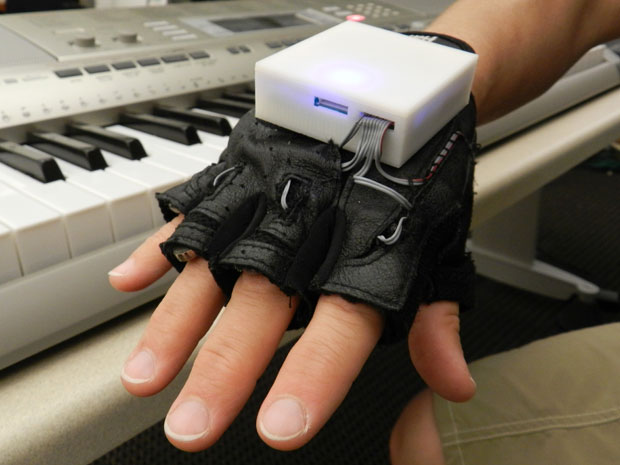Georgia Tech Professor (and Google Glass technical lead) Thad Starner has invented a wearable computer that could provide muscle memory to enable someone to play music or learn dance steps. It is based on haptic feedback, and might one day help the visually or hearing impaired learn Braille or Sign Language.
In a piano-playing experiment, the device was attached to a glove, with a flat vibration monitor sewn inside each finger opening. The five vibrators were wired to a microcontroller on the back of the subject’s hand. It was programmed to fire the motors in the same sequence that the fingers would strike keys on a piano.
Starner believes that repeated buzzing from the glove creates muscle memory that enables a wearer to learn to play a song with far less practice than it would take without haptic stimulation. He has also studied the glove’s effect on people with spinal cord injuries and found that it can help them regain some sensation and dexterity in their hands. The team is now studying whether haptic gloves can teach braille typing and stenography.
